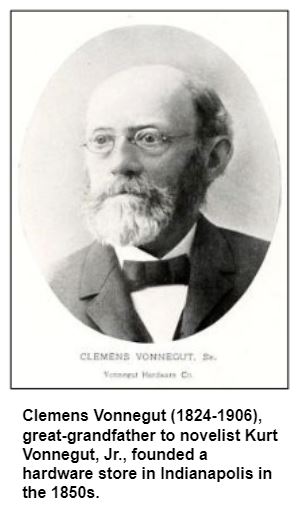Feb 21, 2020
(February 15, 2020) Some folks assume Kurt Vonnegut seldom visited Indianapolis after he achieved fame. Others claim the literary lion disliked his hometown - intensely and continuously - until his death in April of 2007.

Our show explores a range of misperceptions - as well as aspects that are much more nuanced than often assumed - related to the author of the classic Slaughterhouse-Five (1969) and other bestselling books, including the semi-autobiographical Palm Sunday (1981).

Julia and Nelson are joined during the show by Dan Simon, founder of Seven Stories Press, the New York-based publisher of Vonnegut's final three books, including A Man Without a Country (2005). In addition to being Vonnegut's publisher, Dan was his editor and friend.
Kurt Vonnegut Jr. was born in Indianapolis in 1922. His grandfather, Bernard, a well-known architect, was the only one of Clemens Vonnegut's four sons not to be involved for an extended period in the hardware business.
Clemens was a local leader of the German Freethinkers, which Hoosier History Live explored during a show last June. Clemens' grandson, Kurt Sr., was the architect for a Unitarian church in Indianapolis and attended services there.
In Palm Sunday, Kurt Jr. refers to himself as a "Christ-worshiping agnostic." In other references, he describes himself as an atheist, but his works frequently include biblical references and analogies. Our guest Julia Whitehead notes that Vonnegut credited a childhood nanny for much of his early spiritual instruction.